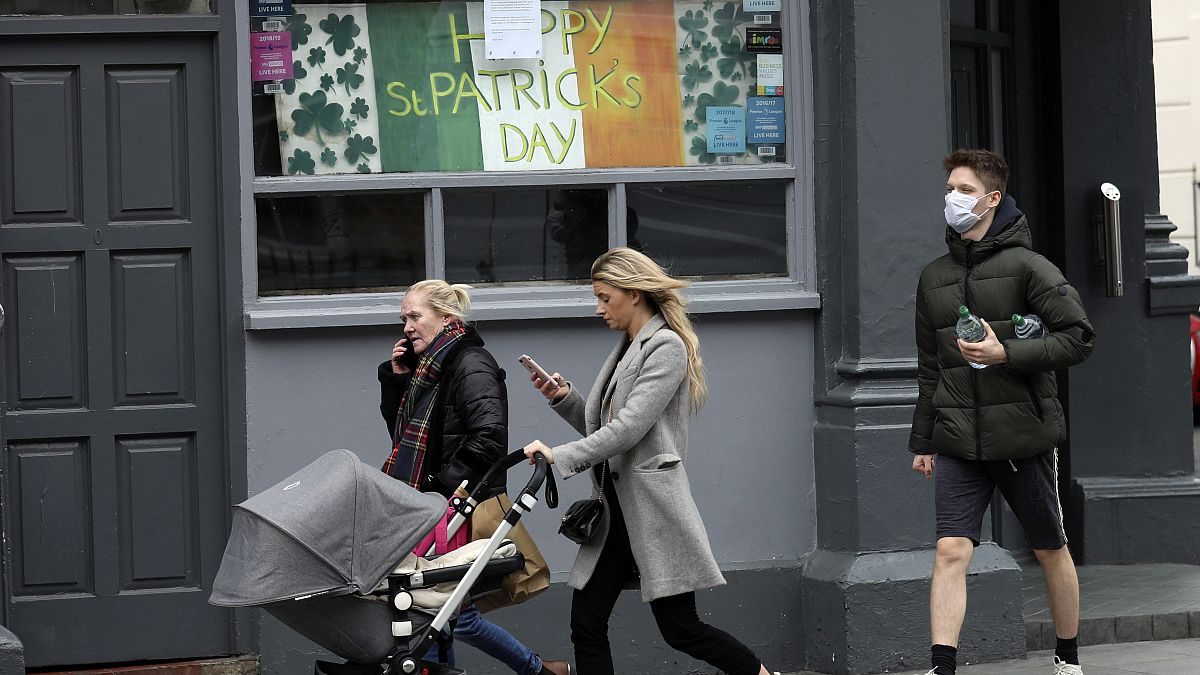Ireland is in day one of renewed confinement measures aimed at stopping the spread of the virus.
The Irish government was urged to act “rapidly, comprehensively and decisively” in its fight against COVID-19, according to its chief medical Dr Tony Holohan.
“We are now in the crucial weeks of our response to COVID-19," said Dr Holohan. "All actions we take are based on epidemiological evidence and in proportion to our experience on this island."
As a result, Ireland is in day one of renewed confinement measures aimed at stopping the spread of the virus.
It follows the steady rise in the number of positive cases of COVID-19 in Ireland and the recommendations from the Irish National Public Health Emergency Team (NPHET) to strengthen efforts against the disease.
As of Wednesday, 25 March there are 1,329 confirmed cases of COVID-19 and seven deaths.
For the past two days positive cases have risen to more than 200 per day, resulting in the government moving to the enhanced lockdown phase.
“There are many, many more cases out there that are not confirmed,” warned Irish Prime Minister, Leo Varadkar.
“We can’t start to even contemplate the idea that were containing this virus until we see the number of new cases a day fall, and fall consistently, and we’re nowhere near that," he said.
Included in the measures is the closure of all organised social indoor or outdoor events of any size are not to take place, such as parties or weddings, non-essential retail outlets to close to members of the public.
Essential retail outlets are ordered to implement strict physical distancing measures.
Outdoor socialising is limited to four people, unless all are from the same household. For example, a family of five living in the same household may still socialise outside together, or household groups such as flatmates, but not a mixed group of people from different households.
Police and park rangers have been given extra powers to intervene if groups are found to breach the rules.
All cafes and restaurants are closed except those that offer a takeaway or delivery service.
Acknowledging the fear and apprehension citizens are feeling about the health and well-being of their families, as well as the drastic changes to their lives, Varadkar said “we now live in a world that has changed utterly and perhaps forever”.
Quoting one of the books from The Chronicles of Narnia by C.S. Lewis, Varadkar said “everyone’s a bit scared but we’re a little less scared together.”
“I hope some kids who are stuck at home will read the Chronicles of Narnia,” he added.
“As we practice physical distancing and work to flatten the curve and suppress the virus, we will come through,” he said.
The Irish government says it has been ramping up testing and hopes to test 15,000 per day within the next four weeks.
So far 14,692 samples have been tested of which 6 per cent have returned positive.
Ireland is following the World Health Organization (WHO) advice to “test, test, test” and is in the top quartile in terms of number of tests per capita, according to chief clinical officer, Dr Colm Henry.
But Dr Holohan and his team say it’s "too early to say" whether the jump in positive results is commensurate to the increased level of testing, or indicates a rise in the spread of cases.
"This is an extraordinary serious situation, and we don't yet know how this is going to play out over the coming days, weeks and months", said Minister for Health Simon Harris.
“What is a cause of concern is the number of ICU (intensive care unit) admissions, which is a reflection that there are number of people seriously ill," said Harris.
Meanwhile, the government announced a wide-ranging economic package designed to protect workers and businesses directly affected by the virus.
The state also announced it is taking control of private hospitals for the duration of the crisis and that all treatment for COVID-19 will be “free” and paid for by the state.
“We must have equality of treatment,” said Harris.
Varadkar said that in order to encourage employers and companies to keep staff on the payroll, the government would subsidize 70 per cent of salaries up to a maximum of €38,000 per year.
He also said the government was increasing the unemployment payment to €350 per week which includes sickness payment for anyone out of work due to self-isolation. The self-employed will also be covered.
The state has also agreed to pay the bill for childcare and pre-school places for children not attending due to ordered closures. It is designed to ensure the facilities can reopen when the crisis is over and children's places are guaranteed for their return.
“Parents don't have to pay for child care that they're not receiving," said Varadkar today.
